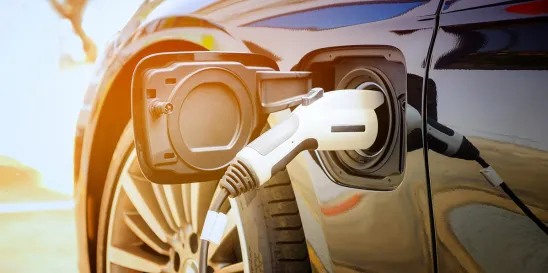Over the past several months the US Treasury Department (Treasury) and the Internal Revenue Service (IRS) have been busy issuing regulations and administrative guidance with respect to Section 30D (New Clean Vehicle Tax Credit), Section 25E (Previously Owned Clean Vehicle Tax Credit) and Section 45W (Commercial Clean Vehicle Tax Credit) under the US Internal Revenue Code of 1986, as amended (Code). The following summary discusses important aspects of those regulations and administrative guidance as they relate to the availability of electric vehicle (EV) tax credits to businesses engaged in selling or leasing EVs, including:
EV Tax Credit Transfers. Treasury and the IRS released proposed regulations on October 10, 2023, addressing the transferability of EV tax credits from qualified EV purchasers to qualified EV dealers at the point of sale in exchange for cash back or a reduction in the sale price of the EV (the Proposed Transferability Regulations).
EV Tax Credit Recapture. The Proposed Transferability Regulations contain specific guidance regarding recapture of Section 30D EV tax credits.
EVs Ineligible for Tax Credits Due to Battery Requirements. Treasury and the IRS released proposed regulations on December 4, 2023, addressing the participation of "foreign entities of concern" (FEOCs) in the manufacturing or assembly of EV battery components or the extraction, processing or recycling of critical minerals used in EV batteries (the Proposed FEOC Regulations). If an EV battery does not comply with the Proposed FEOC Regulations, the related EV will not be eligible for the Section 30D EV tax credit.
Incremental Cost Safe Harbor. The IRS released Notice 2023-05 on December 20, 2023, extending the incremental cost safe harbor for Section 45W EV tax credits through the end of 2024.
EV Tax Credit Transfers
The purchaser of a qualifying new or used EV (i.e., under Section 30D or Section 25E, respectively) can elect to transfer the value of those EV tax credits to a qualifying dealer at the time of the sale in exchange for cash or a reduction of the EV's purchase price. If a purchaser makes this election to transfer the EV tax credits, the election is irrevocable and the full amount of the allowable EV tax credits is transferred to the qualifying dealer. For a purchaser to be eligible to make this transfer, it must otherwise satisfy the requirements to receive the EV tax credits (e.g., the adjusted gross income requirements) and it cannot be depreciating the purchased EV in a trade or business.
The ability to transfer EV tax credits is especially useful to purchasers who do not otherwise have sufficient tax liabilities to make use of the EV tax credits because they receive an immediate benefit equal to the full value of the EV tax credits.
Dealers that participate in the EV tax credit transfer program typically will receive payment for the transferred EV tax credits via direct deposit within 72 hours of submission. For a dealer to participate in the EV tax credit transfer program, it must:
- sell used or new EVs and be licensed by the applicable jurisdiction to do so;
- register with the IRS to become a "registered dealer" and to provide electronic seller reports and submit advance payment requests; and
- maintain its tax compliance with the IRS by filing all required US federal information and tax returns and paying all US federal taxes.
Except as discussed below with respect to recapture, transferred EV tax credits are not included in the taxable income of either the purchaser or the dealer. Also, the dealer will not be permitted to deduct any payment it makes to the purchaser for the transferred EV tax credits.
EV Tax Credit Recapture
The Proposed Transferability Regulations provide specific rules regarding recapture of Section 30D EV tax credits, as follows:
Cancelled Sales. If a purchase contract is cancelled prior to the purchaser taking possession of the EV, the purchaser cannot claim or transfer the Section 30D EV credit. Since the purchaser did not take possession of the EV, the EV will continue to be eligible for the EV tax credit upon a subsequent qualifying sale.
Returns of EVs Within 30 Days. If a purchaser returns the EV within 30 days of taking possession of the EV, the purchaser cannot claim the Section 30D EV tax credit for the EV. If the purchaser had elected to transfer the Section 30D EV tax credit to the dealer, any advance payment made to the dealer by the IRS for the credit will be collected from the dealer as an excess payment through an increase in the purchaser's income tax liability. In addition, because the purchaser took possession of the EV, the EV will no longer be "new" and, therefore, will be ineligible for the Section 30D EV tax credit going forward.
Resales of EVs Within 30 Days. If a purchaser sells an EV within 30 days of taking possession of the EV, the purchaser cannot claim the Section 30D EV tax credit for the EV. If the purchaser had elected to transfer the Section 30D EV tax credit to the dealer, the dealer keeps the advance payment made to the dealer by the IRS, and the IRS will collect the amount of the transferred credit from the purchaser. In addition, the Section 30D EV tax credit may not be claimed or transferred with respect to the EV going forward.
Ineligible Purchasers. If a purchaser is ineligible for the Section 30D or Section 25E EV tax credits because it does not satisfy the adjusted gross income requirements, the purchaser is not eligible for those EV tax credits and its gross income will be increased by the amount of any EV tax credits it claimed but was not eligible to receive. For EV tax credits that a purchaser transfers to a dealer at the time of sale, the dealer is not required to verify whether the purchaser meets the adjusted gross income requirements to qualify for the transferred credits. As a result, the dealer will not be required to repay to the IRS any advance payment the dealer receives for transferred EV tax credits if the purchaser is ineligible for the EV tax credits as a result of failing the adjusted gross income requirements. The gross income of the purchaser will be increased by the amount of transferred EV tax credits that the purchaser was ineligible to receive.
Excessive Payments to Dealers. If the IRS makes an advance payment to a dealer for transferred EV tax credits in excess of the amount of the eligible EV tax credits, the dealer's gross income will be increased by the amount of such excess payment. In addition, if that overpayment did not result from reasonable cause (as demonstrated by the dealer), the IRS will impose a 20 percent penalty on the amount of the excess payment. If a purchaser returns an EV within 30 days of taking possession of the EV, the dealer will be treated as demonstrating reasonable cause. In addition, as discussed above, if the excess payment results from the purchaser's ineligibility for the EV tax credits as a result of failing the adjusted gross income requirements for the EV tax credits, the dealer may keep the advance payment and the IRS will collect the amount of the excess payment from the purchaser through an increase in the purchaser's income tax liability.
EVs Ineligible for Tax Credits Due to Battery Requirements
The Section 30D EV tax credit requires that a specified percentage of an EV's battery components be made or assembled in North America, and that a specified percentage of the critical minerals in the EV's battery be extracted or processed in the United States or in countries that have a free trade agreement with the United States or recycled in North America. In addition, the Section 30D EV tax credit will not apply if a FEOC manufactures or assembles components of the EV's battery or if, after 2024, a FEOC extracts, processes or recycles the applicable critical minerals in an EV's battery. These battery requirements do not apply to the Section 45W commercial EV tax credit or the Section 25E used EV tax credit.
A FEOC is an entity that is:
- designated by the US Secretary of State as a foreign terrorist organization;
- included on the list of specially designated nationals and blocked persons maintained by the Office of Foreign Assets Control (OFAC);
- owned by, controlled by, or subject to the jurisdiction or direction of a "covered nation" government (such as the governments of China, Iran, North Korea and Russia);
- convicted of espionage; or
- determined to be a national security or foreign policy threat to the United States by the US Secretary of Energy.
The Proposed FEOC Regulations require that manufacturers (i) conduct due diligence to ensure with reasonable certainty that "battery components" and "applicable critical minerals" meet the FEOC-compliance standards; (ii) submit certain attestations, certifications and documentation to the IRS for approval of the number of FEOC-compliant batteries (subject to further review and reconciliation); and (iii) maintain one or more ledgers to account for and track FEOC-compliant batteries. Manufacturers must conduct their due diligence in conformance with standards for tracing battery materials available in the industry at the relevant time, and they may reasonably rely on supplier attestations or certifications for purposes of their due diligence if the manufacturer does not know or have reason to know that the attestation/certification is incorrect.
Incremental Cost Safe Harbor
The IRS extended the incremental cost safe harbor for Section 45W EV tax credits through the end of 2024. The Section 45W EV tax credit for qualified EVs used or leased in a trade or business (i.e., qualified commercial EVs) is limited to the lesser of 30 percent of the taxpayer's basis in the EV or the "incremental cost" of the EV, with a maximum allowable tax credit of $7,500. The "incremental cost" of an EV is the excess of the purchase price of the EV over the price of a comparable internal combustion engine vehicle. Based on analysis by the US Department of Energy, the IRS will accept the use of $7,500 as the incremental cost for all street EVs with a gross vehicle weight rating of less than 14,000 pounds, other than compact (including minicompact and subcompact) plug-in hybrid EVs. For compact plug-in hybrid EVs, the IRS will accept the use of $7,000 as the incremental cost.
Howard Schickler and Joseph Topolski contributed to this article.









 />i
/>i
